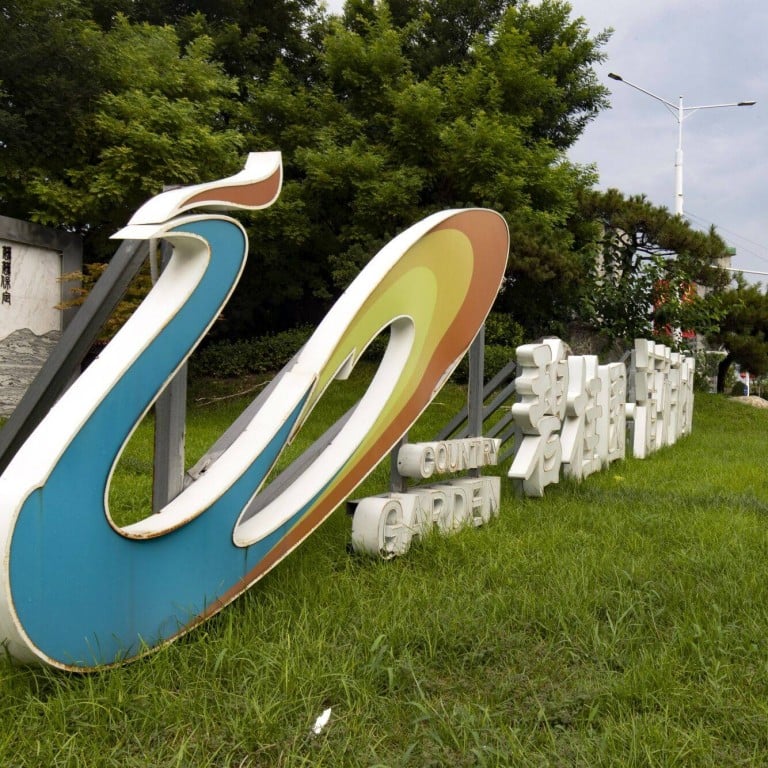
China property crisis: Country Garden, Vanke sales spiral as developers await measures to ease liquidity stress, stimulate demand
- Country Garden’s contracted sales slump 60 per cent to 12.07 billion yuan (US$1.7 billion) in July, while China Vanke’s sales drop 34.6 per cent to 22.05 billion yuan
- PBOC governor Pan Gongsheng pledges financial support for private firms during a meeting with executives of developers and other enterprises
The slowdown in China’s property market continued in July, with major developers reporting a slump in contracted sales, further exacerbating their liquidity crisis.
Meanwhile, measures announced by the government should alleviate their burden, but liquidity risks remain unless sales improve to reasonable levels, analysts warned.
Pan called for “precise implementation of different housing credit policies that reasonably meet the financing needs of private real estate enterprises and promote the sound development of the real estate sector”, according to Xinhua News Agency.
New scheme allows Hongkongers to co-own a home in Shenzhen for first time
After the Communist Party’s Politburo last week softened its tone towards the country’s property sector, hinting at more policy easing, the shares of property developers initially perked up as investors expected more steps to follow. But with no concrete measures announced so far, the gains have been limited this week.
The Hang Seng Mainland Properties Index of Chinese developers trading in Hong Kong pared the day’s gain to 0.7 per cent on Friday after rising by as much 5 per cent, as optimism on policy support gave way to concerns about industry fundamentals.
Shares of Country Garden closed 1.4 per cent lower at HK$1.43, giving up gains of as much as 6.9 per cent, while China Vanke closed 0.4 per cent lower at HK$10.70 after rising by as much as 3.7 per cent.
Country Garden was also dealt a blow by the credit rating downgrade by Moody’s to B1 from Ba3, which further pressured its bonds. Its dollar bonds are currently trading at distressed levels. Its 8 per cent bonds due 2024 have almost halved in value since the start of the week, trading at 25 cents on the dollar.
Improving sales holds the key to solving the developers’ liquidity problem in the long-term, according to analysts.
“The August sales [of big developers] should improve slightly versus July as policies kick in,” said Raymond Cheng, managing director of CGS-CIMB Securities.
“The two main problems faced by developers are liquidity and sales,” he said. “In the short-term, the liquidity problems could be eased temporarily with more [easing] measures and banks offering credit support, but in the long-term it will depend on the sales performance,” he said.
Kaven Tsang, senior vice-president at Moody’s Investors Service, said the measures being introduced for now are more focused on helping the developers mitigate their near-term refinancing needs.
“[As] property sales remain soft, the developers’ liquidity pressure will be aggravated if they are not able to get refinancing from banks when their cash flow is reducing but still need to service maturing debt,” Tsang said.
China’s housing authorities vow support as property crisis deepens
Another big challenge is lifting homebuyers’ confidence.
“To improve sentiment, some home purchase restrictions may have to be relaxed in tier-one cities. When the sentiment in tier-one cities improves, it can be extended to lower tier cities,” Cheng said.
The contracted sales of China’s top 100 developers totalled 350.4 billion yuan in July, falling 33.1 per cent year on year and 33.5 per cent month on month, according to real estate intelligence provider CRIC.
“The credit support measures in the previous phases had limited actual benefits for private developers,” said Xingping Wang, a senior corporate analyst at Fitch Bohua, noting that the measures on bond issuance mainly benefited state-owned companies previously.
“It will take time to see the effect of the new policies, as sales have not improved and developers’ liquidity has not yet eased,” she added.



